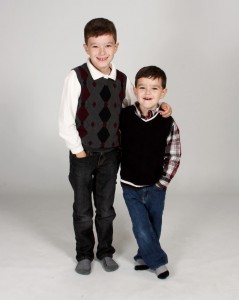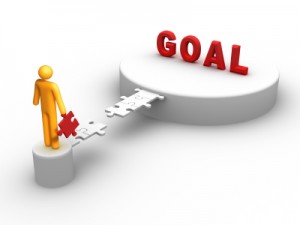I have two boys, one with autism and one without. I happen to think of them equally most of the time and I tend to also talk about them equally.
This sometimes leads to some confusion when I tell everyone that “my son did” something.
And it doesn’t mater what I say he did… it could be the most polar opposite thing that an autistic would do and someone will remark about how their autistic child does that too.
Seeing autism where there is none
These are usually parents but even sometimes autistics themselves who will relate to my younger son, the one without autism. Sometimes it’s understandable, as he may be doing something characteristically autistic, such as shying away from others/crowds, having a meltdown… these things sometimes make me wonder too. Truth is, he’s clearly not autistic. It wouldn’t take you more than 5 minutes with him to see that.
At first it was kinda funny and I’d be sure to explain that I’m not talking about my autistic son… but then it happened more and more until finally I was having full conversations with people about how much this happens to other people too.
Sometimes the mistake is understandable, sometimes it’s a stretch and other times it’s like… there’s just no way.
Setting up the assumption
In a way, it’s a bit leading to begin with… I mean, you’re in the autism community, talking to others in the autism community, in their mind, they’re already preparing for an autism discussion. It’s hard to switch modes once you’re in that frame of mind.
My name in most places is autismfather. So when someone sees my name, they assume that I’ll be talking about an autistic kid. It’s pretty much a given.
This can “direct” the conversation right from the get go. I get that. Still though, I can try as hard as I can to make it clear that it’s not my autistic child that I’m referring to and still get a response about how they can relate due to their own autism situation.
Not that I’m complaining
The thing I’ve come to realize is that it’s not really a bad thing, it’s a great thing. The more a typical child can be mistaken for an autistic child, the better. Because it means that the lines are blurring. Even if it is still mostly within the autism community rather than the rest of society.
It’s still a bit comforting to know that my children’t aren’t so different. That I can talk about either, in most situations, and no one will be able to tell if I’m referring to the one that has autism or the one who doesn’t.
Is that how it is for everyone? No, most certainly not. Some people have children that are unable to speak or “function” as would be expected for their age… and so the signs are much more pronounced.
But for me, it’s great to know that Cameron is doing so well that I could mention something that he or his brother are doing and most people wouldn’t be able to tell which son I’m talking about.
It doesn’t make Cameron any less autistic nor does it make Tyler any more autistic, they’re still very different from each other and still both with their respective strengths and weaknesses… but there’s enough of a similarity there that people are unable to just know which one I’m talking about.
And in a way, that gives me hope for the future. For both of them.
Because Cameron is far better off if he can be confused for his brother and, even though some people that think negatively towards autism may disagree, I feel that Tyler is actually better off if there are some ways that he can be confused for his brother too.
Feel free to think he has autism. Feel free to see autism where there is none. I don’t mind at all!













